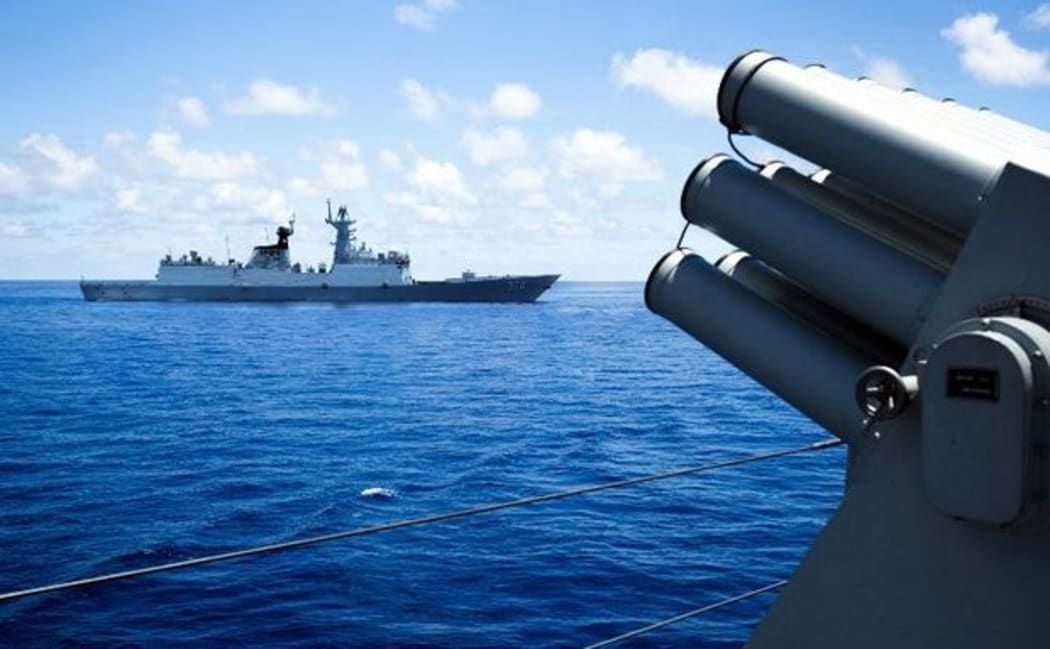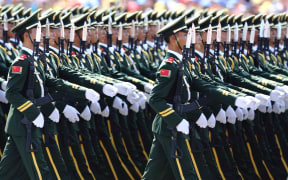There will be consequences for China after its latest militarisation of the South China Sea, the White House says.

Crew members of China's South Sea Fleet take part in a logistics supply drill near the James Shoal area on South China Sea. Photo: AFP
US news network CNBC reported that China had installed anti-ship cruise missiles and surface-to-air missile systems on three outposts in the South China Sea. It cited sources with direct knowledge of US intelligence.
Asked about the report, White House spokeswoman Sarah Sanders said there would be consequences but not what they would be.
"We're well aware of China's militarisation of the South China Sea. We've raised concerns directly with the Chinese about this."
Australian foreign minister Julie Bishop said China had previously promised not to militarise the disputed area.
"China, of course, has a unique responsibility as a permanent member of the Security Council, to uphold peace and security around the world," Bishop told reporters in Queensland.
"Any action to militarise unilaterally features in the South China Sea would go against that responsibility and that role.
A US official, speaking on condition of anonymity, said intelligence had seen some signs that China had moved some weapons systems to the Spratly Islands in the past month.
CNBC quoted unnamed sources as saying that according to US intelligence assessments, the missiles were moved to Fiery Cross Reef, Subi Reef and Mischief Reef in the Spratly Islands within the past 30 days.
They would be the first Chinese missile deployments in the Spratlys, where several Asian countries including Vietnam and Taiwan have rival claims.
China's defence ministry did not respond to a request for comment. Its foreign ministry said China has irrefutable sovereignty over the Spratlys and that necessary defensive deployments were for national security needs and not aimed at any country.
"Those who do not intend to be aggressive have no need to be worried or scared," ministry spokeswoman Hua Chunying said.
- Reuters




